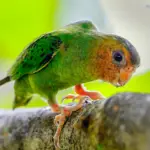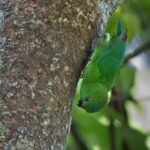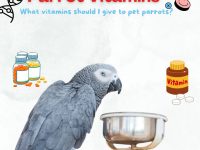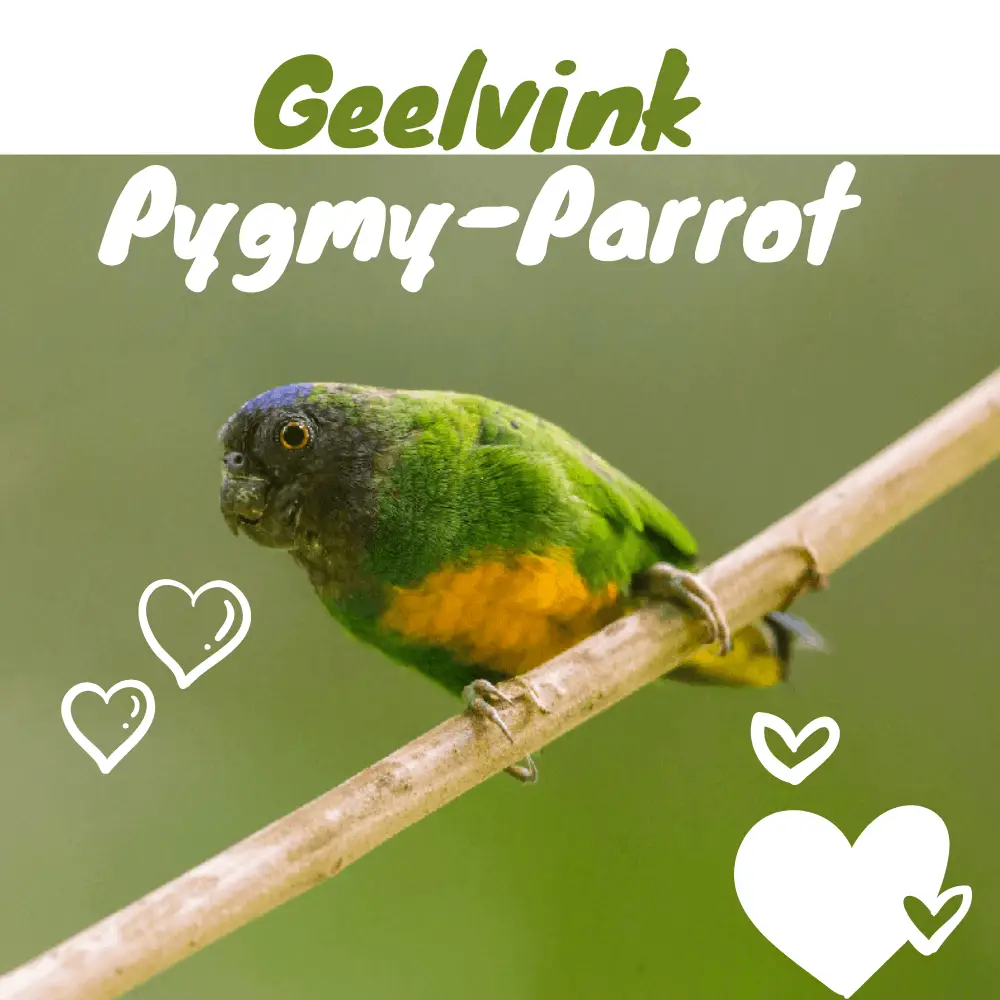
Geelvink Pygmy-Parrot (Micropsitta geelvinkiana) 9 cm; 13–17 g. Most of the plumage is green, but the crown and face dark brownish blue, bluer on the throat, with a yellow arc on hind crown, broad orange-yellow center to underparts from breast to undertail-coverts.
This parrot Female has green underparts and duller face; lacks yellow on the crown. The juvenile has a light-brown face and a wide naked white area around the eye. Race misoriensis has head brown.
Micropsitta geelvinkiana Scientific name definitions
- NT Near Threatened
- Names (15)
- Subspecies (2)
Systematics History
Editor’s Note: This article requires further editing work to merge existing content into the appropriate Subspecies sections. Please bear with us while this update takes place.
Forms a species-group with M. keiensis and M. pusio. Two subspecies recognized.
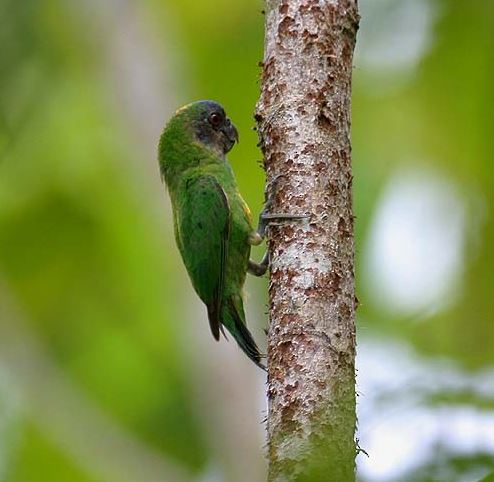
Subspecies
SUBSPECIES
Micropsitta geelvinkiana geelvinkiana Scientific name definitions
Distribution
Numfor I, in Geelvink Bay, NW New Guinea.
SUBSPECIES
Micropsitta geelvinkiana misoriensis Scientific name definitions
Distribution
Biak I, in Geelvink Bay, NW New Guinea.
Distribution
Editor’s Note: Additional distribution information for this taxon can be found in the ‘Subspecies’ article above. In the future, we will develop a range-wide distribution article.
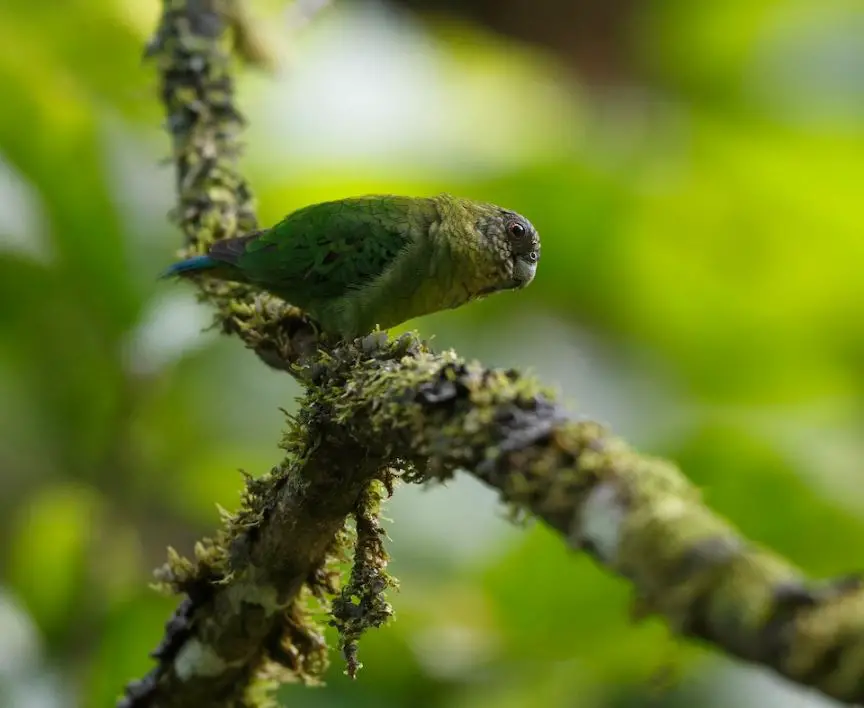
Geelvink Pygmy-Parrot
Habitat
Primary and secondary forest, including regrowth as low as 4 m high, woodland edge adjacent native gardens. Recorded only up to 150 m.
Diet and Foraging
Probably lichen and fungus off the bark, as in other Micropsitta; crushed seeds were in the stomach of a collected bird.
Sounds and Vocal Behavior
Geelvink Pygmy-Parrot Calls involve high-pitched short notes such as “tsit” or “tsee”. Also short high-pitched warbled phrases when perched.
Breeding
Geelvink Pygmy-Parrot with slightly developed gonads in Dec; nest construction in Jun, and 2 nestlings also in Jun. Nest in arboreal termitarium.
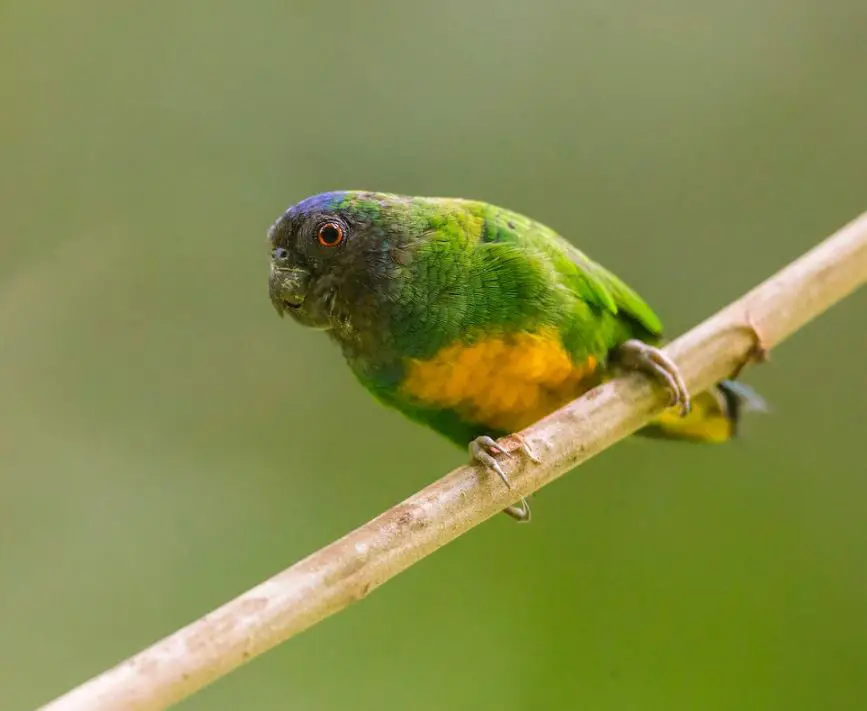
Conservation Status
Conservation status on BirdlifeNT Near Threatened
Geelvink Pygmy-Parrot: Not globally threatened. CITES II. Currently considered Near Threatened. A BirdLife “restricted-range” species. Well distributed in good numbers in lowland secondary and remnant primary forest patches on Biak, and throughout adjacent Supiori (off NW Biak).

